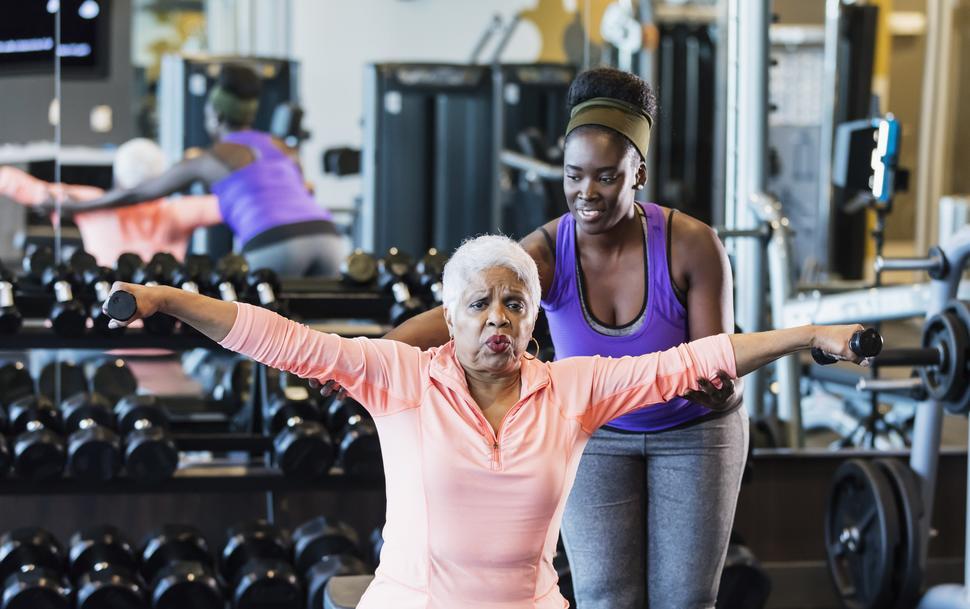Physical Activity May Lessen the Effects of Chemobrain, Study Finds
, by NCI Staff
This study describes work conducted in collaboration with DCEG investigators, and is an excerpt of the original blog post from Cancer Currents: An NCI Cancer Research Blog.
In early 2019, after starting chemotherapy for breast cancer, Dawn Schnell began to experience what she describes as a mental fog.
“Within two treatments, I started feeling like I was losing it a little bit,” said Schnell, who was 45 years old at the time. “I’d walk into a room and think, ‘Why did I come in here?’ It really feels like that fog has taken over your brain, and you can’t process as well as you used to.”
Schnell isn’t alone. Up to three-quarters of people with breast cancer report having cognitive impairment during chemotherapy, often called “chemobrain” or “chemofog.” Symptoms can include confusion, memory loss, difficulty concentrating, and a shortened attention span. These problems can last for many years after chemotherapy ends.
Research suggests that physical activity may help people with breast cancer avoid some of these problems. So, while Schnell was undergoing chemotherapy, she took the advice of her health care providers to be more physically active. She would go out for brisk walks, walk on her treadmill, or do laps around her house, even on days when her body ached from the treatments. Schnell said that getting her body moving “was instrumental” in preventing her cognitive problems from getting worse.
Now, a large study of people with breast cancer lends further evidence to the idea that staying active during chemotherapy may help limit the severity of cognitive issues that arise. And the benefits may be even greater for patients who had an active lifestyle before treatment.
In the study, a team led by Michelle C. Janelsins, Ph.D., of the University of Rochester Medical Center, found that people with breast cancer who met the minimum national physical activity guidelines before and during chemotherapy had better cognitive function immediately and 6 months after chemotherapy than people who did not meet the guidelines. The results were published August 18 in the Journal of Clinical Oncology.
These findings “could inform early [symptom] prevention strategies” for people diagnosed with breast cancer, such as prescribing a period of regular exercise before starting treatment, said the study’s first author, Elizabeth Salerno, Ph.D., M.P.H., of the Washington University School of Medicine in St. Louis.
Treatments are extending the lives of people with breast cancer, Dr. Salerno continued, and it’s important to prevent cognitive decline so they can maintain a high quality of life and continue engaging with the world around them.
“This study demonstrates the importance of having a baseline level of physical activity before you start chemotherapy,” said Diane St Germain, R.N., M.S., C.R.N.P., of the Community Oncology and Prevention Trials Research Group in NCI’s Division of Cancer Prevention. “What's important as next steps is really understanding the timing and the dosing of exercise and what's feasible within the context of getting chemotherapy.”
Read the full Cancer Currents blog post.
Reference
Salerno EA et al, Physical activity patterns and relationships with cognitive function in patients with breast cancer before, during, and after chemotherapy in a prospective, nationwide study. J Clin Oncol. E-pub 2021 Aug 18.
